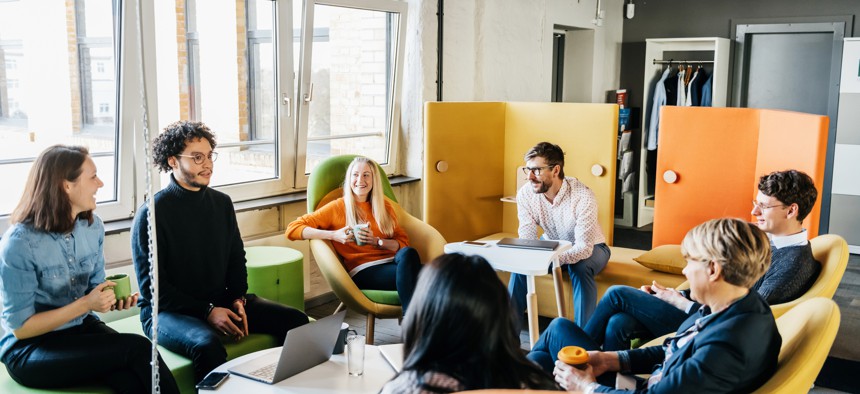Building Your Crew: The power of “Masterminds”
Nonprofit leaders benefit from having a trusted network of support, especially after the isolation created by COVID-19.

Building Your Crew Tom Werner/ Getty Images
Too often, when I talk to the executive directors and CEOs that I work with and the topic of leadership comes up, I find myself in a conversation about how lonely it all can be. Even for people who have a great relationship with their team and a strong board of directors, so much of what we do as leaders requires us to be out on the proverbial limb, alone.
This feeling of - and in many ways, actual - isolation has only been exacerbated by the pandemic. Organizational psychologist Adam Grant wrote eloquently about how we’re all missing the unique joys of collective effervescence: That sense of energy people feel when they come together in a group around a shared purpose. When I was running my organization, that collective energy was often what helped buoy me during tough times. It helped remind me of what I was committing to and why.
At the same time that we’re experiencing increased isolation, so many of us in the social impact space are doing harder, more emotionally taxing work. Leadership looks and feels harder to sustain when we’re being called to the frontlines of battles for the health and safety of so many communities in pain.
So many of the leaders that I work with are having to make really tough decisions about their teams, their work, how to reshape what they do … about the future of their organizations.
And what they’re feeling – which isn’t wrong – is that the buck stops with them. Even those leaders that have incredible teams and supportive boards can feel that in the end, they are ultimately holding the proverbial ball.
Now more than ever, the remedy to this sense of loneliness and pressure is to build a structured network of support: to find your “crew.” My recommendation: Start a “Mastermind” group.
I’ve spoken and written in the past about the power of Masterminds as a structured form of support, accountability, and professional growth. The pushback I often get is: “If only I had the time…” My argument in response is always the same: “Make. The. Time.” It’s time to normalize – and even prioritize – building intentional networks of peer support that can honor and sustain us as leaders, professionals, and whole people.
One of the best analogies that I can think of for this is that of a marathon runner. As the runner makes her way through the race, there are people along the way giving her cups of water. She doesn’t have to get off of her path, or even stop running, in order to be nourished and supported by her crew. I like this analogy because so often we think of making time for something like a Mastermind group as “taking time off.” We see it as breaking our stride, or a departure from the “real” work of leading our organizations.
The reality is that no one can lead an organization alone. You must cultivate a network of people that you can rely on and trust for support and advice, and that will hold you accountable to your goals and your growth.
I know from personal experience. The education collective that I was part of for more than half my time as an executive director changed almost everything about how I lead. We met every month for breakfast for seven years – long after many of us had stopped being actual executive directors. Over time, we came to call ourselves the “Sustainable Sisterhood.” The women in my Mastermind group served as friends, confidantes, mentors, cheerleaders, and coaches. They shared my wins with me and helped me bounce back from my losses.
During our regular meetings, we shared stories and provided emotional support, and equally as importantly, we pushed one another to become stronger, more effective leaders. We set personal goals and held one another accountable to those goals. We workshopped specific challenges and shared resources, and we brought our individual unique skills and passions to the table to lift one another up and elevate our collective game. Ultimately, we found that coming together regularly and serving as a structured support and accountability network for one another made our work exponentially more sustainable and impactful.
I have come to believe that building a crew - a network of peers to provide both support and loving accountability - is as important to one’s leadership as building capacity in fundraising, HR, or strategic program design.
So my gentle reframe when people argue that making time for a Mastermind group is getting off course, is that it’s not actually a pause in the race. We never actually stop running the marathon. Making time to build and sustain your crew is just making sure you have people to help fill your cup so that you can stay the course.
